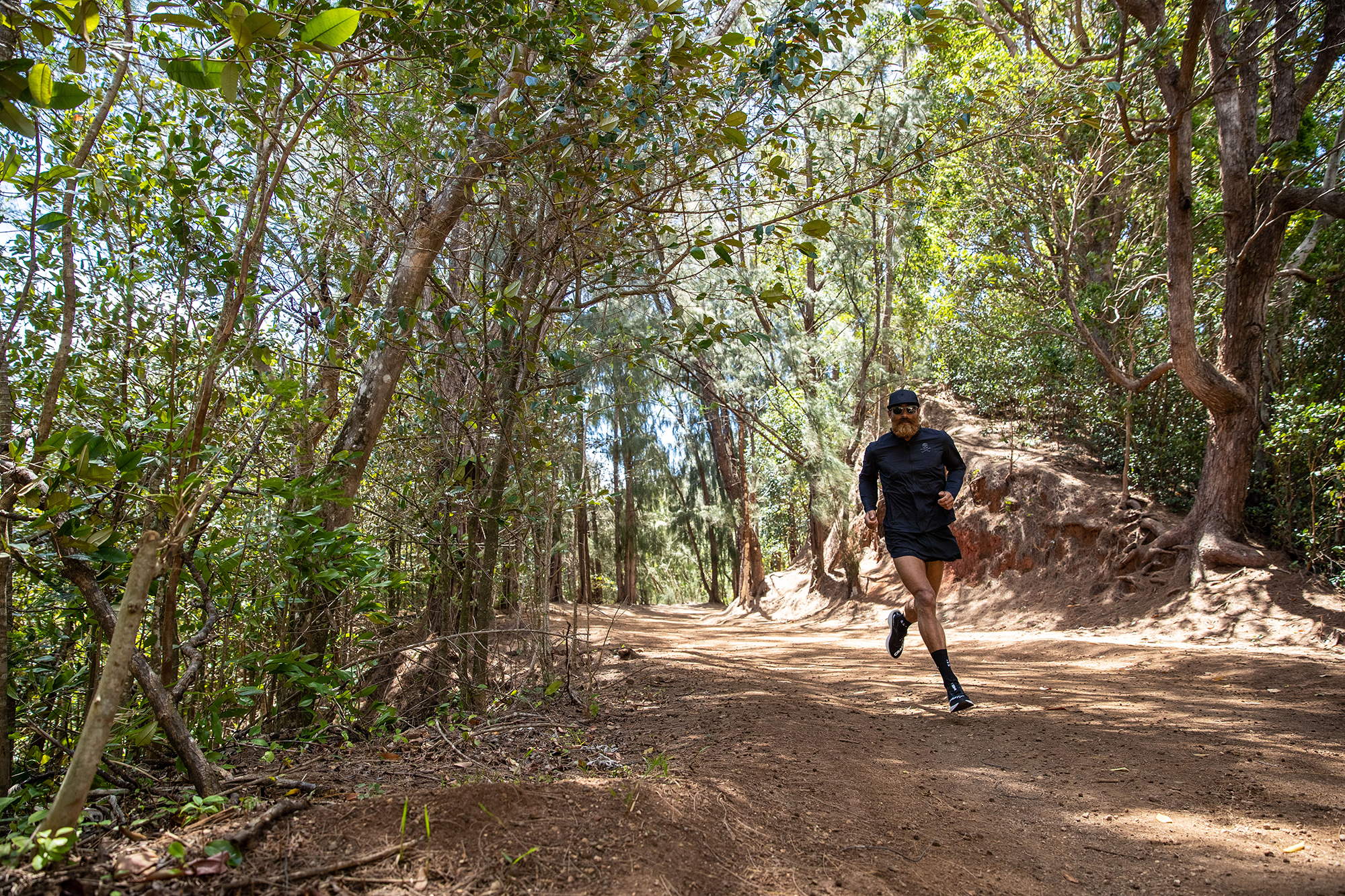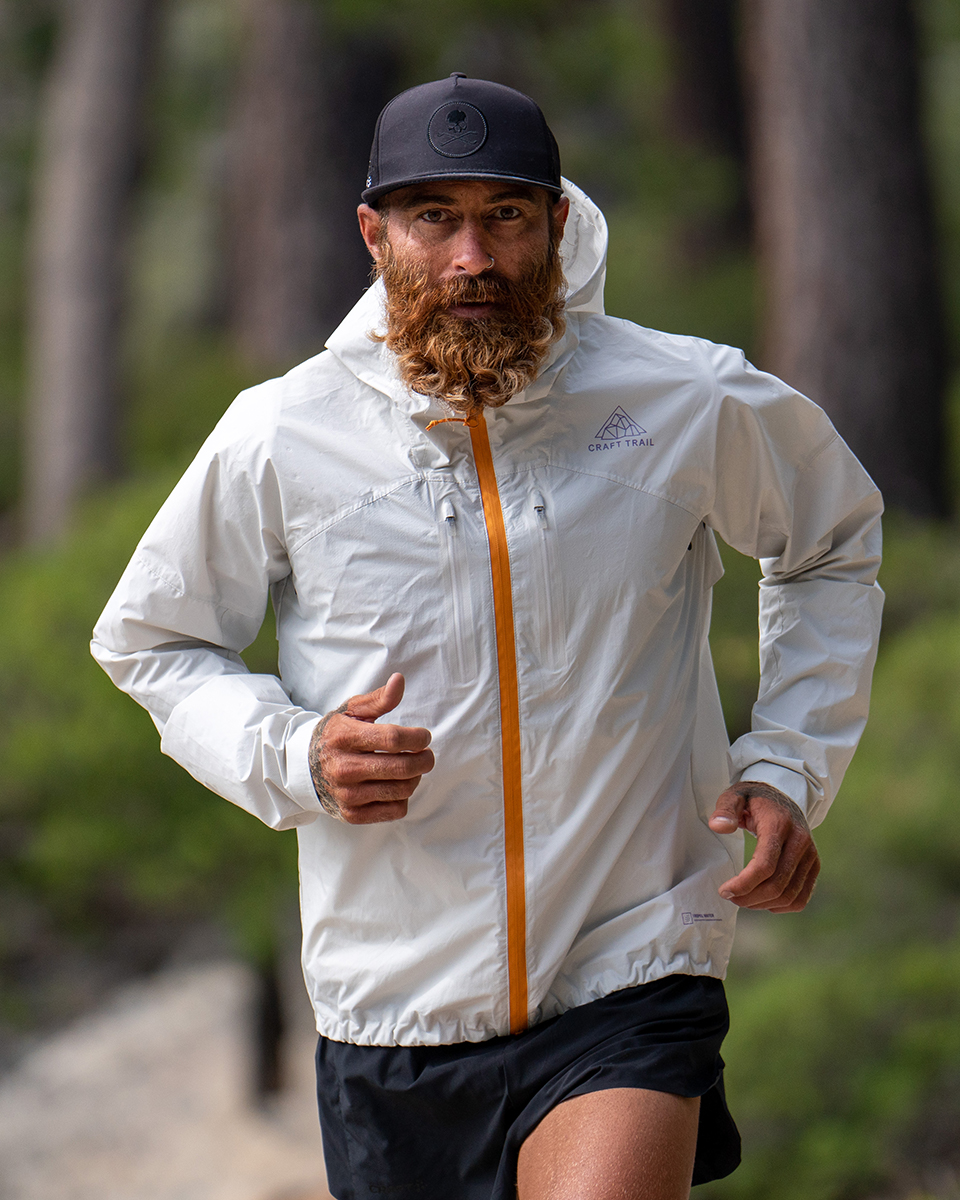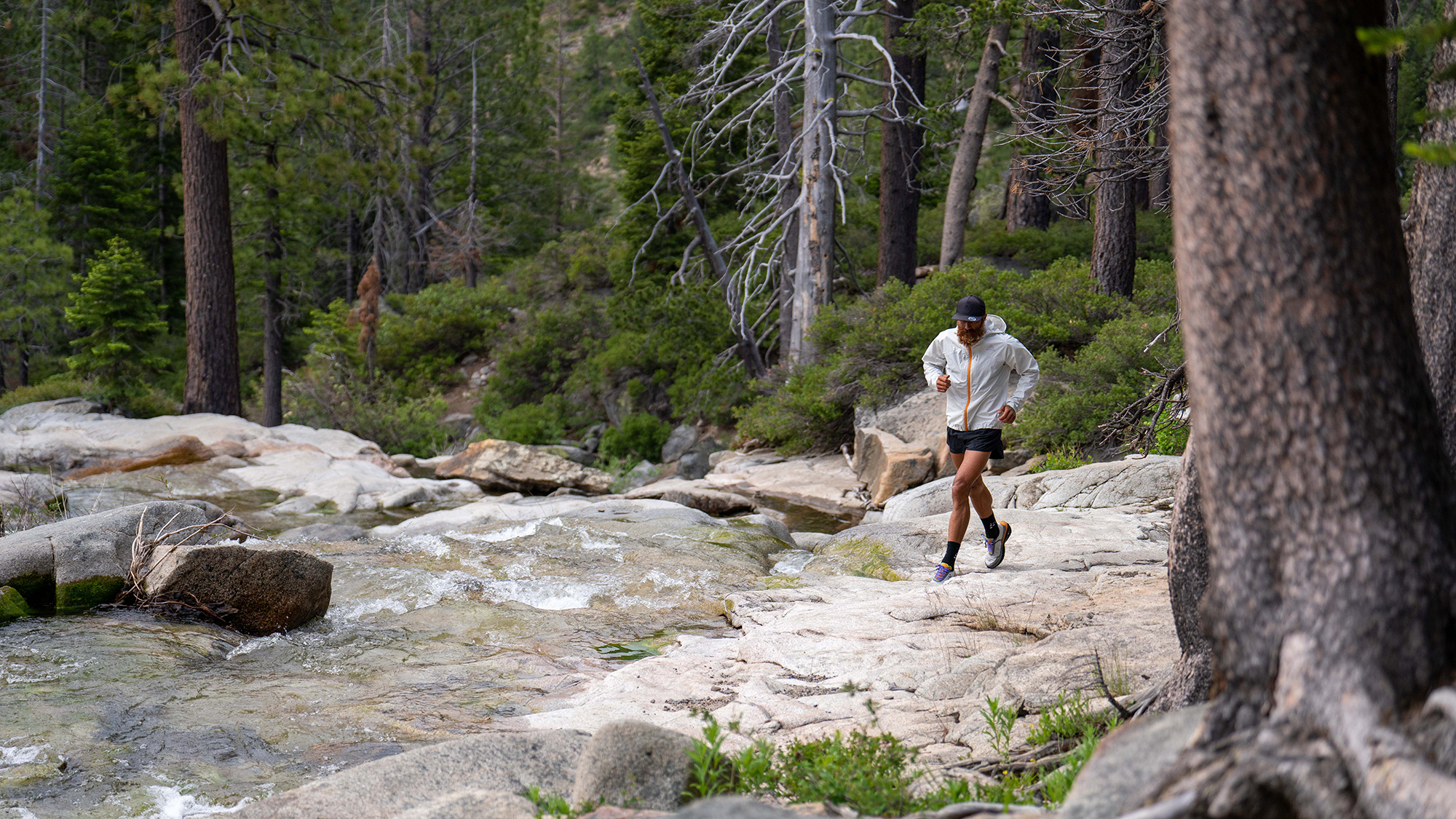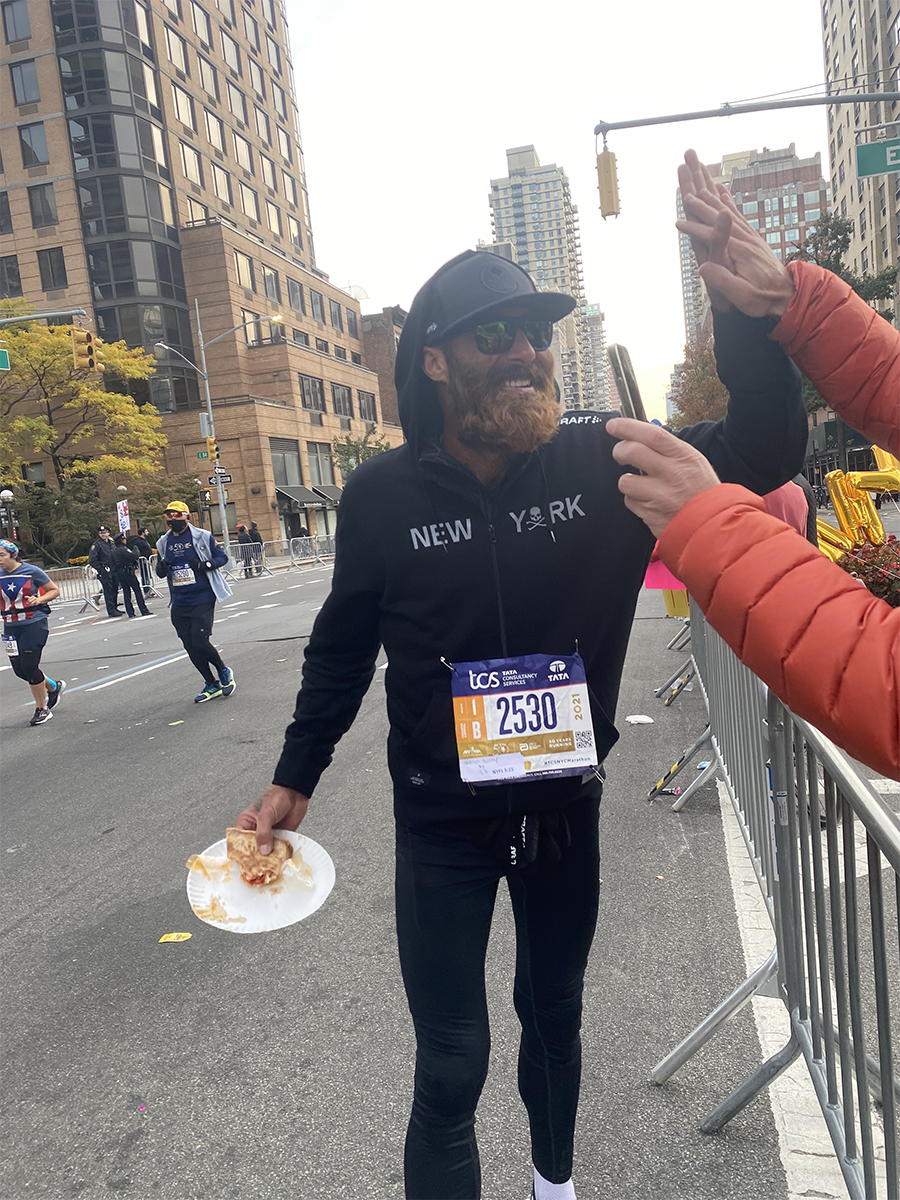After Facing Death, the New York City Marathon Has New Meaning for Tommy Rivers Puzey

When Tommy Rivers Puzey toes the starting line at the New York City Marathon on Nov. 6, he will once again stand out with the chiseled muscular frame that has always set him apart from the much smaller and leaner physique of the elite marathoners he once competed against.
While his physical strength and relentless determination will be on full display, the elite-level aerobic engine that once put Puzey on the verge of qualifying for the U.S. Olympic Trials Marathon will be blatantly absent. His 26.2-mile journey from Staten Island to Central Park won’t be about running fast, but instead celebrating his remarkable recovery from a rare form of lung cancer.
“If I was trying to build a body that was trying to be fit to run my best marathon, it would look very different,” says Puzey, whose six-foot, 178-pound frame looks as fit as ever. “The only thing I am focused on now is building enough mass and endurance and building enough strength and fortitude so that, if and when I do get sick again, that I have enough meat on my bones to give the doctors something to work with.”

Although Puzey, aka “Rivs,” continued to approach training with a similar mindset and physical tenacity that had helped him run marathons in two hours, 18 minutes and change, his goals and perspective have shifted drastically since being cleared by doctors exactly two years ago.
The 38-year-old athlete still considers the marathon to be the ultimate benchmark of fitness and strength. But instead of chasing an arbitrary time goal through the streets of New York, he’ll be lacing up his sneakers to enjoy the progress he’s made and channel the gratitude of merely being alive.
Why does he keep training so hard when he’ll never run as fast as he once did? He wants to be as fit and strong as possible if he has to deal with cancer again, but mostly because it provides a sense of purpose, commitment and the only way he can think of paying back those who helped him survive.
“It’s this odd combination of prioritizing it because I feel like my life depends on it for my future well-being, but then also realizing that life is actually happening right now right in front of me,” Puzey says. “Often as endurance athletes, myself included when I was more serious about the competitive aspect of it, we defer any sense of happiness or satisfaction because we somehow think it is going to keep us from achieving our ultimate goal. We spend years or sometimes even decades trying to accomplish that and everything short of that is a failure. And then when we do actually reach it, it feels good for like 15 minutes. This is more meaningful than that.”

For more than a decade, Puzey was a beloved figure in the Flagstaff, Ariz., endurance sports community both as a physical therapist and an elite-level road runner, ultrarunner and triathlete. Mostly it was because he was a thoughtful, genuine soul who was known to selflessly encourage and support those around him as much as he was relentlessly dedicated to his own pursuits.
He was a regular at the Tuesday-evening public track workouts hosted by Team Run Flagstaff and a fixture at the Thursday-morning community runs from Biff’s Bagels. He’d often voluntarily pace runners Kellyn Taylor and Stephanie Bruce of the Hoka NAZ Elite team in their hardest workouts and once spontaneously guided Taylor for 10 miles in a half marathon even as he was enroute to racing his own marathon.
By 2017, Puzey had run the Boston Marathon in a career-best 2:18:20 and placed 16th overall, finished in the top 10 of 100-mile races in the mountains and completed the Ironman World Championship in Kailua Kona, Hawai‘i, in under 10 hours. Although he was a professionally sponsored athlete, he developed an enormous fan base more from his sage social media presence—he has more than 368,000 followers on Instagram—than his considerable athletic achievements.
“There is nobody more self-deprecating than Rivs,” says Ben Rosario, the founder of Team NAZ Elite. “It’s not like he was winning the Boston Marathon before. The way he created fans—and I think it was very organic and very authentic—was just by being himself. He was showing you how darn hard he was working and sharing the highs and lows with that whole process, and I think because of that, he’s been very relatable in a way much more than most elite athletes are.”
In early 2020, Puzey took one last shot at breaking the Olympic Trials qualifying standard at the Houston Marathon and was on pace to run in the 2:17 range late in the race before stumbling in a pothole and spraining a knee. Although disappointed, he returned to other endurance-related projects, online fitness coaching via the iFit subscription platform and his role as an athlete ambassador and product consultant for Craft Sportswear.
After a training run in the Grand Canyon early that summer, he felt subpar. When heat stroke and severe dehydration were ruled out and several COVID-19 tests came back negative, he checked into a Flagstaff hospital, where doctors put him through a battery of tests that ultimately led to the discovery of a rare and deadly form of pulmonary lymphoma.
Puzey survived five months of intense treatment—which included being sedated into a medically induced coma and five rounds of chemotherapy—but being mostly idle and confined to a hospital bed decimated his strength and fitness. By the time he was released, he weighed 94 pounds and needed the aid of a walker to maneuver across a room.
He made some basic rehabilitative progress and started to slowly regain weight while temporarily living in the Phoenix area with his wife, Steph Catudal, and three young daughters, Harper, 12; Iris, 7; and Poppy, 5. But when the family moved back home to Flagstaff, Puzey’s progress evaporated into the thin air of the 7,000-foot environment.
At the advice of his oncologist, he moved his family to the sea-level setting of Hawai‘i, where he and Catudal had met in college. Not only was he able to breathe better, but he was able to gradually regain fitness by using a run-walk method and biking with his daughters to and from school every day.
He entered last year’s New York City Marathon with the hope of running slowly through the five boroughs as a mark of his progress, but he wound up walking every single step and spending more than nine hours on the course.
True to his tenacious character, Puzey kept at it. After finishing the Boston Marathon on April 18 in six and a half hours, he was reenergized to pursue bigger athletic challenges. But then he had a bit of a setback and a reality check after undergoing a minor surgery to update a pericardial window that had been previously created to drain excess fluid from the space surrounding his heart.
Not long after that procedure, a positron emission tomography (PET) scan suggested the cancer might have returned. However, there were no red flags in his blood work, and his doctors eventually concluded the imaging test merely picked up ongoing inflammation from surgical incision sites in his lungs and not a return of the disease.
“That was a big scare that created a big limbo with a lot of suspense,” Puzey says. “I was trying not to be an alarmist, but instead take it as a reminder that, ‘Yeah, we’re still in this.’ If nothing else, it was a reminder that I was right not to let my guard down.”

Puzey has come a long way since then, even though his lung capacity is still limited. He’s been consistent with his run-walk training routine—usually alternately between 30 seconds of running at 10-minutes-per-mile pace and 30 seconds of walking—and has ridden his bike around the 105-mile circumference of Oahu on several occasions.
He has been relentless about his daily strength routine, which includes countless deadlifts, pull-ups, push-ups and planks. But he’s a long way from the days when he used to log 120-mile weeks of running and racing marathons at sub-5:20 mile pace.
How fast will he run the marathon with his new training routine? Ultimately, it might not really matter.
“He’s still waking up before the sun, still putting in the miles, still working hard,” Catudal says. “But our perspective has changed in that our desire to want to be present in all things that used to feel so monotonous is now just beautiful and something to celebrate. That feels, more than anything, that’s the greatest gift. We’re not chasing down dreams or huge goals, but just enjoying each other and our family and enjoying life as it unfolds.”
In addition to being as strong and fit as possible, Puzey feels he owes a debt of gratitude to his medical team, the Flagstaff community and the friends, fans and followers from around the world who helped raise more than $1 million to offset his medical bills. That includes Craft, which gave him the proceeds of its highly successful Team Rivs line of clothing.
Interestingly, Puzey will be running in Craft shoes and running clothes that he provided design input for both before and after he was sick. In what might seem like a rare move contrary to modern sponsorship deals, the company never considered taking Puzey off retainer when he got sick, CEO Eric Schenker says, even after his ability to continue as an elite-level runner was nullified.
“It never crossed our minds,” Schenker says. “He’s become integral to what we’re all about. He’s a brand evangelist, but he’s part of creating the brand identity. It’s impossible to put a figure on how he has helped us evolve as a brand. He’s part of our family.”
It’s hard to capture what Puzey represents or why he’s so influential, but he’s a gentle soul who carries an inspirational vibe, Rosario says.

As he was trudging along the final miles of the New York City Marathon course last fall, almost all of the runners and fans had departed. But as he approached the homestretch in Central Park, a small chorus of clapping and cheers erupted in the darkness. It was a sizable contingent from the NAZ Elite team—including Rosario, Bruce and Taylor—who had been tracking his progress.
“It was unbelievable to see him doing what he was doing,” Rosario says. “He’s helping a lot of people, whether he knows it or not. He’s just this thoughtful, larger-than-life figure that really inspires people.”
Says Bruce: “We left our post-race dinner to see him finish…Here he was nine-plus hours and more than 25 miles into walking the entire course, and just before he gets to us, he says, ‘How did Steph and Kellyn do?’ And we were like, ‘Tommy don’t worry about that. This is about you!’
“But that’s just a testament to who he is as a human,” Bruce says. “He’s a special person in our lives, for sure.”
